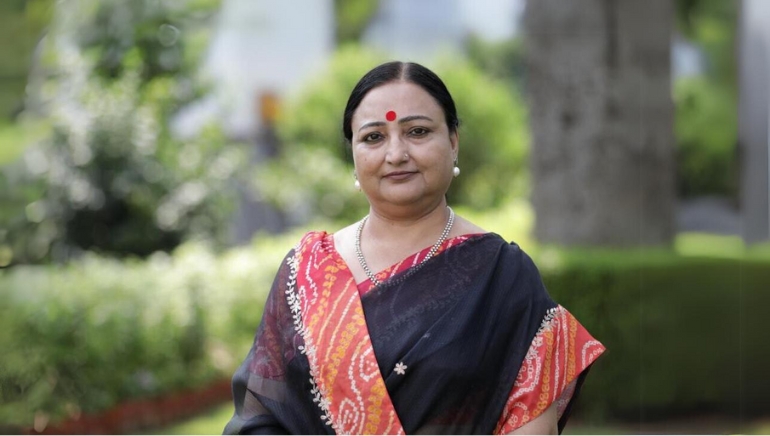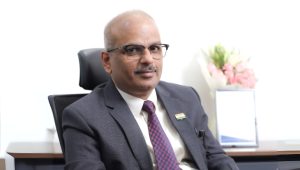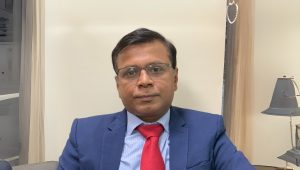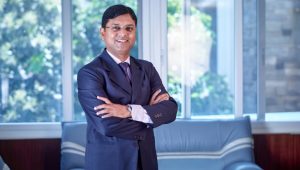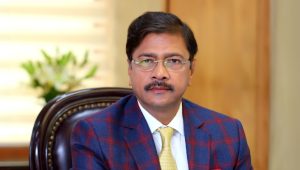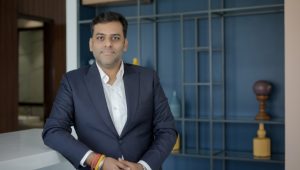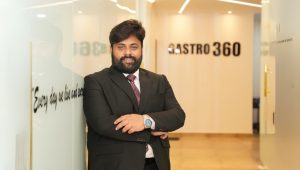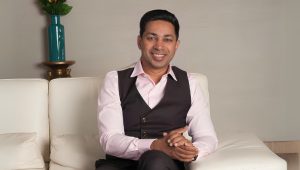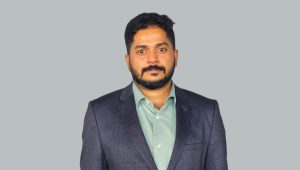A DISABILITY RIGHTS’ CHANGE-MAKER
A social worker with a difference, Dr. Mallika Nadda, the Chairperson of Special Olympics Bharat, has been dedicated to the mission of building an inclusive society. For the last 30 years, she has been associated with the cause of women welfare and empowerment, and the rights of the disabled. The Professor of History at Himachal Pradesh University, Shimla, trusts initiatives like Special Olympics to help create awareness and remove barriers for persons with intellectual disabilities, and drive change in society.
“IN A WORLD WHERE MOST JUDGE OTHERS BY APPEARANCES AND BACKGROUNDS, DR. MALLIKA NADDA GIVES THE MESSAGE OF LOOKING AT A PERSON’S TALENT, CONFIDENCE AND HARD WORK. TO HER, THE “ABLED SOCIETY” NEEDS THE DIFFERENTLY ABLED AS THE DIFFERENTLY ABLED NEED THE ABLED SOCIETY”
Born in Jabalpur, Madhya Pradesh, Dr. Mallika Nadda got from her parents the inspiration to selflessly engage in social service. In particular, she learned a lot about Special Olympics Bharat from her mother, who was a politician. The inspiration not only helped her choose the path of service, but also a vision to empower many in need. She became associated with several causes during her student days. Her election as the Student President of Jabalpur College enabled her to associate with more causes and make real change. In 1991, she founded the Viklang Seva Bharti, a Jabalpur-based social welfare organisation that works for all-round development of the disabled. Even today, it serves children affected by mental disabilities, hearing impairment, bone disruption, and cerebral palsy.
Dr. Nadda’s journey as a social worker was interesting, as there were visible and not-so-visible challenges, like coming from a political family. In India, it is not easy for the next generation of political families, as people have expectations and try to see one’s potential and work on the basis of their families’ influence and politics. But, Dr. Nadda refused to get disturbed by this pressure. Certain issues were always a priority for her, like the girl child, and she made a conscious decision to not get involved in active politics, but to build her grassroots work to enable change.
COMMITTED TO SOCIAL SERVICE
In 1991, after her marriage to Jagat Prakash Nadda — an Indian lawyer and politician now serving as the President of Bharatiya Janata Party — Dr. Mallika Nadda settled in the Indian state of Himachal Pradesh. In 1999, she set up in Bilaspur a non-governmental organisation called Chetna, with an aim to reach the inaccessible sections of society living in the rural areas of the state. She realised that the persons with disability (PwDs) are generally misunderstood because of their inconspicuous nature, and not even 2% of them are reached or covered by any kind of rehabilitation models. It presented an opportunity to her organisation to make a change.
Chetna began its operations with the goal of providing equal rights and opportunities to PwDs, also ensuring their full participation along with giving them a barrier-free environment through available rural resources to transform their lives. This organisation, which started from 10 Panchayats of Bilaspur in 1999, is working in more than 150 Panchayats today. In addition to Chetna, Dr. Nadda is associated with various social service initiatives with a number of organisations in Bilaspur, Shimla, Delhi and other cities.
In 2002, Dr. Nadda established the Himachal Pradesh Chapter of Special Olympics (SO) Bharat. Special Olympics Bharat is a national sports federation recognised by Special Olympics for the conduct of sports and development programmes in India. Since 2006, the organisation has been organising sports for people with intellectual disabilities, and has more than 1.5 lakh registered athletes. During her tenure at Himachal Pradesh Chapter of SO Bharat, Dr. Nadda played a prime role in organising snow sports and winter sports. Soon, Special Olympics encouraged differently-abled athletes to participate in competitions in the World Winter Games, where Indian sportspersons displayed their outstanding sporting talent. In 2021, Dr. Nadda took over as the Chairperson of Special Olympics Bharat. She assumed the role with the challenge of preparing the SO Bharat contingent for the Kazan Winter World Games 2022 amidst a global pandemic. She believes that initiatives like Special Olympics help create awareness and remove barriers for persons with intellectual disabilities. Her vision is that India should have 750 accessible sports centres in all of its cities and at least one disabled accessible stadium in every state. To her, this is not overly ambitious, and can be definitely accomplished with the cooperation of state governments, public sector undertakings and grassroots training centres in every district.
A DISABILITY-RIGHTS ADVOCATE
Persons with disabilities have special functional abilities and a unique identity of their own. Such capable players of our country have time and again presented tough challenges to the players of the world with their talent. However, there are only a few who recognise their talent and dedication, and bring to light their relentless efforts to not only empower many like them, but also to give a bigger message that life is a constant struggle to beat the odds. Dr. Nadda is one of the rare few. In a world where most judge others by appearances and backgrounds, she gives the message of looking at a person’s talent, confidence and hard work. She believes that the “abled society” needs the differently abled as the differently abled need the abled society
As no two children are the same, it is wrong to expect all the children to perform uniformly. One must also know that children are emotional beings, and not only physical and intellectual beings. The problem is not in their abilities, but our uniform expectations from them. The PwDs may simply require resources different from those required by the abled children – like Braille books for those with limited or no vision and hearing aids for those who cannot hear properly – to show their true abilities. The shortcoming is with our understanding, and not their capabilities. With this approach, Dr. Nadda attends to every need of these children. The meaningful steps she is taking for their welfare are commendable for every individual and a lesson that if we consider the disabled as an important part of our society, then we can also become a part of their happiness.
AWARDS AND ACCOLADES
An educator by profession, Dr. Nadda is working as Professor of History at Himachal Pradesh University. The dynamic leader dedicated to putting her vision to work also plays the role of a wife and mother equally well, becoming an inspiration for women of all walks of life.
For her relentless work for the welfare of underprivileged children and Divyangs, Dr. Nadda has been recognised with many national and international honours. The Ministry of Women and Child Development, Government of India, awarded her with the Rajiv Gandhi Manav Seva Award in 2010 for her exemplary work in the field of child development. She was also awarded the Derozio Award in 2011 for her exceptional contribution in the field of education, and the Rotary Shreyas Award for her exemplary services in the social sector in 2015-16.
Dr. Nadda ranks prominently in the Fame India – Asia Post Survey of 25 empowered women. ICFAI University, Sikkim, has honoured her with an Honorary Doctorate of Literature.





